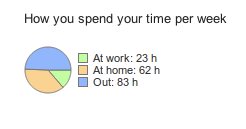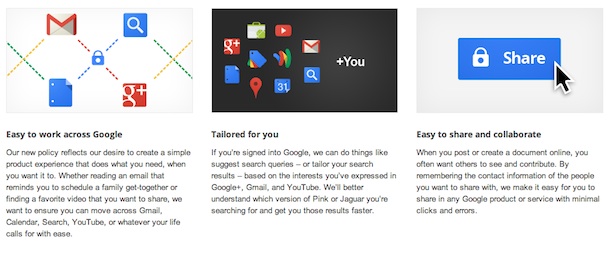
We’re beginning to wake up to what free Web services do with our data. Google has been the main driver of this story in 2012, launching its new privacy policy that binds up each user’s data for ad targeting across all Google services. People react viscerally against this. But what’s really in our data that’s so valuable?
Unquestionably, there are abuses of user data that go too far. But the truly troubling stories have a halo effect. Early adopter culture is hardening against the idea of any kind of data collection about users. But cultural norms are always changing. Isn’t it possible that there are some kinds of data collection that could be valuable to users?
Google itself has begun trying to change the norms around this. It created a new opt-in monthly account activity report that provides Google users with some basic analytics about their Googling habits.
It’s nothing earth-shaking, just stats about searches and email. But the point is, those kinds of insights are interesting. Google is trying to demonstrate that it can use its data-gathering powers for good.
Yesterday, Gmail engineer Saurabh Gupta blogged about a tool called Gmail Meter. It gives you much more detailed analytics about your Gmail, including inbound and outbound traffic over time, average response times, word counts, thread lengths and more.
It’s made by Romain Vialard, a top contributor to Google Apps Script. He’s not a Google employee; he’s just a developer and a user motivated by the richness of all the data available from Gmail.
Do efforts like this demonstrate the value of personal analytics, or do they just distract from important privacy concerns? According to the real “quantified self” enthusiasts, the key is owning the data.
The Quantified Self
Your average Google user isn’t in the same position as someone like Stephen Wolfram, who has been logging his every keystroke for decades and using his own tools to analyze the data. He can record and analyze any kind of sensitive data he wants without worrying about crossing the privacy line.
Other quantified-selfers like the creators of Geoloqi have started to build demonstrations of the value that personal tracking can provide as a service. Today’s Web services create a fixed form for users to fill out, and that template stands in for who the users are. What if our profiles were made entirely of the data we collected about ourselves?
“You are the button,” Geoloqi cofounder Amber Case says. That is, the fully quantified self has all the power. We know personal data is valuable because companies like Google all want a piece. But if we own vastly more data about ourselves than we’re willing to give out, we have the advantage. Companies will have to compete on privacy in order to serve us.
Google’s new effort to be the Web service provider to our online




0 Responses
Stay in touch with the conversation, subscribe to the RSS feed for comments on this post.